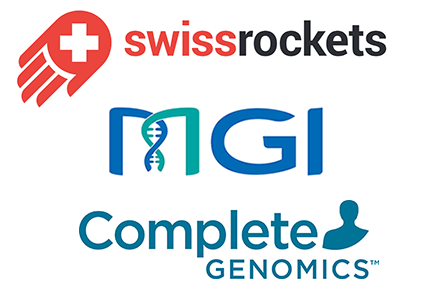Recently, China has witnessed a new wave of omicron variant in major cities and provinces including Xi'an, Tianjin, Zhuhai, Shenzhen, Zhongshan and Henan. In response, MGI high-efficiency and innovative equipment including sequencing platforms, lab automation systems and robotic ultrasound systems, has been providing instrumental support in the detection, monitoring, surveillance, and tracing of the new variant to safeguard the country.
MGI Automation System improves the efficiency of large-scale nucleic acid testing in Tianjin, Henan, Shenzhen, and Zhuhai.
On January 8th, when several positive cases of COVID-19 were reported in Tianjin, MGI quickly deployed multiple automation systems, including MGISTP-7000 high-throughput automated sample transfer processing system, MGISP-NE384 high-throughput automated nucleic acid extractor, and MGISP-960 High-throughput Automated Sample Preparation System, to enhance the large-scale testing capacity in Tianjin.
"MGI lab automation systems can run for 24 hours non-stop, minimize the labor required, reduce human errors and significantly shorten the turnaround time for a test report, thus improving the testing efficiency and capacity." Said Xie Yuxiong, Engineer of MGI.
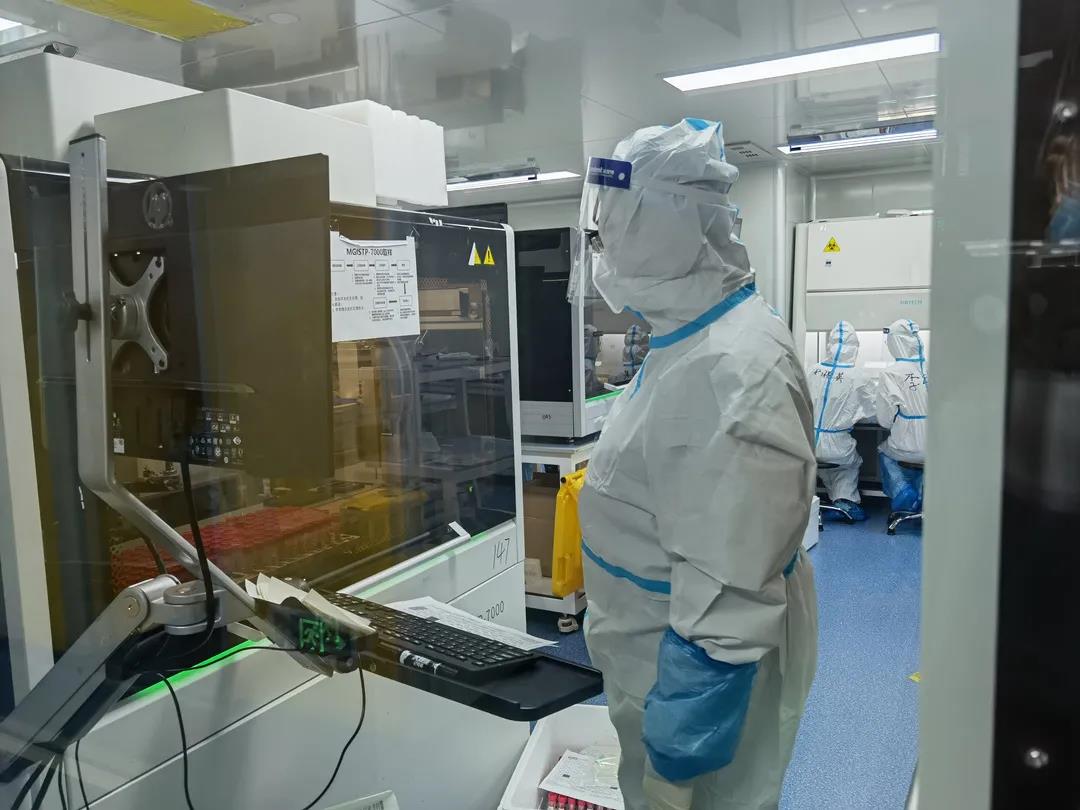
"Since the beginning of COVID-19 pandemic in 2019, we are committed to upgrading our innovative platforms to standardize diagnostic labs with higher data capacity and automation for large-scale nucleic acid detection. Now, a single unit of MGISP-960 can process 32 samples in 9 minutes and a unit of MGISP-NE384 can process 384 samples in 15 minutes and 10,000 samples per day." Said Zou Liangying, Senior Product Manager of Automation Products at MGI.
In addition, multiple units of MGI's Nucleic Acid Detection Vehicle and Mobile Container Laboratory have also been delivered to many places in Anhui Province, Henan Province, Shanxi Province and Hunan Province to provide instrumental support for the local large-scale COVID-19 testing.
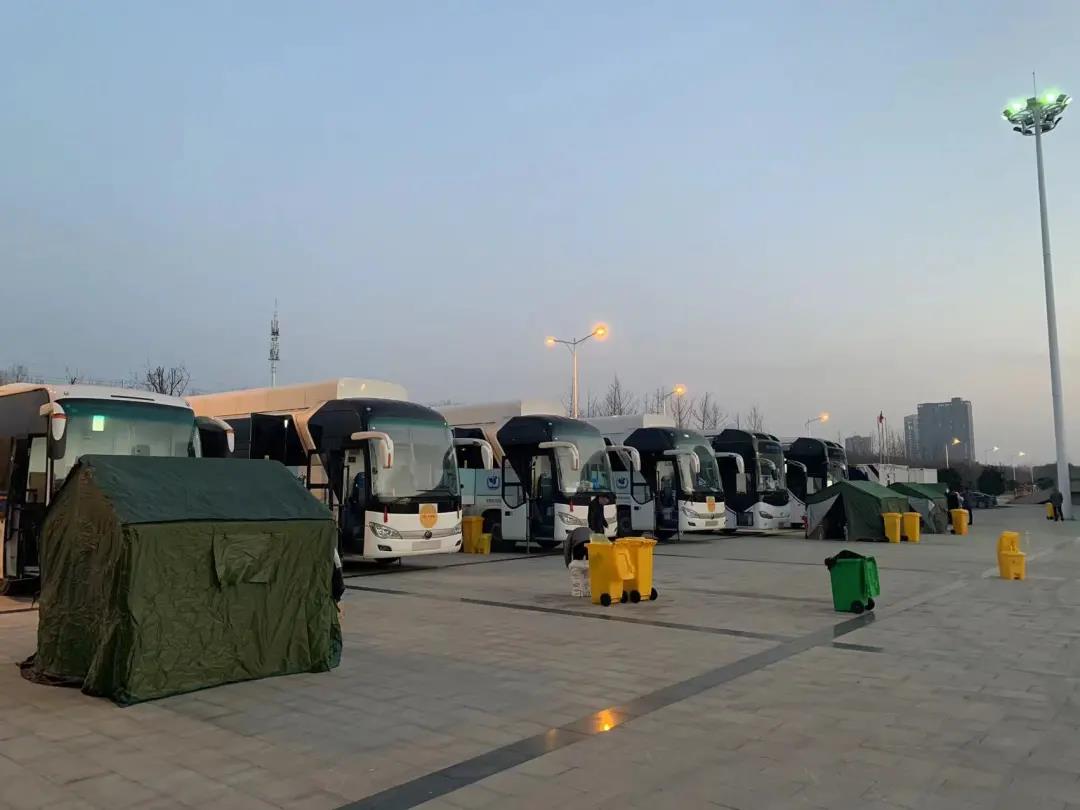
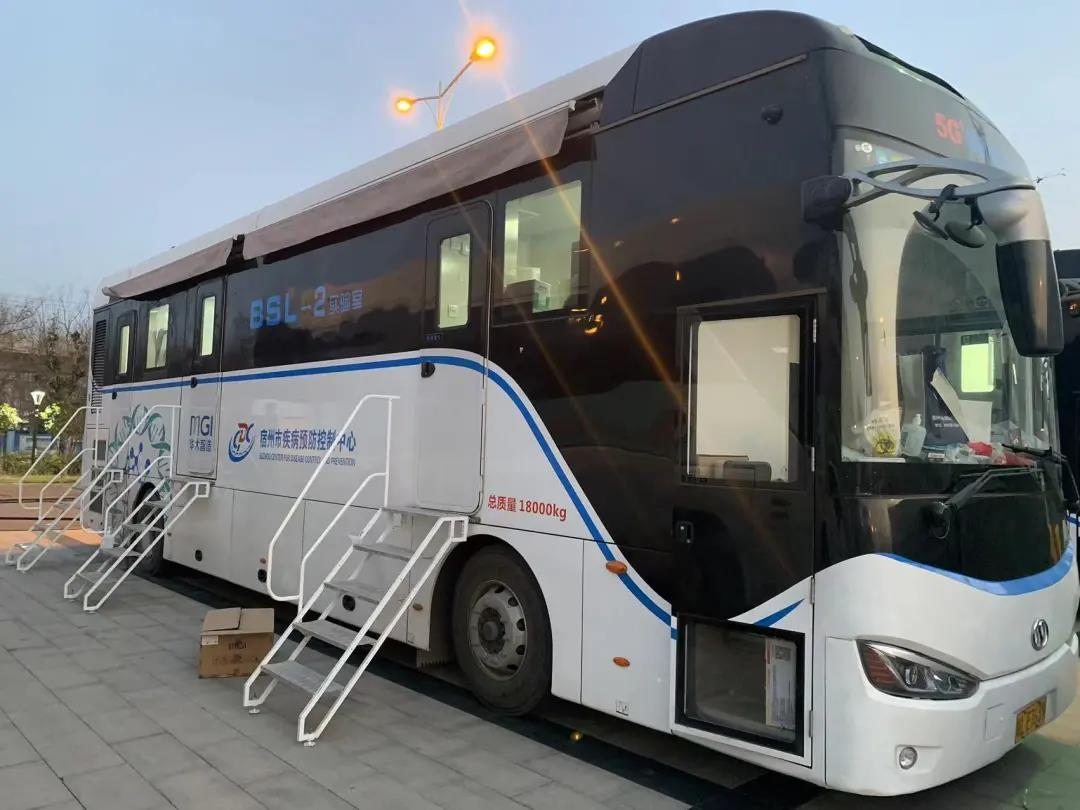
Seven Units of Nucleic Acid Detection Vehicle Delivered to the Anhui Provincial Health Commission
At the beginning of the new year, Shenzhen started another round of fight against the COVID-19. MGI las automation systems have been pivotal in boosting the large-scale testing capacity in local hospitals and nucleic acid detection laboratories.
Meanwhile, multiple MGI lab automation systems were put to test in Zhuhai, Guangdong Province, on January 13th to support the mass COVID-19 testing. The automation systems are playing an instrumental role in the national pandemic control and prevention by enabling fast-turn-around COVID-19 testing. MGI innovative platforms have supported 24 cities in China to date.
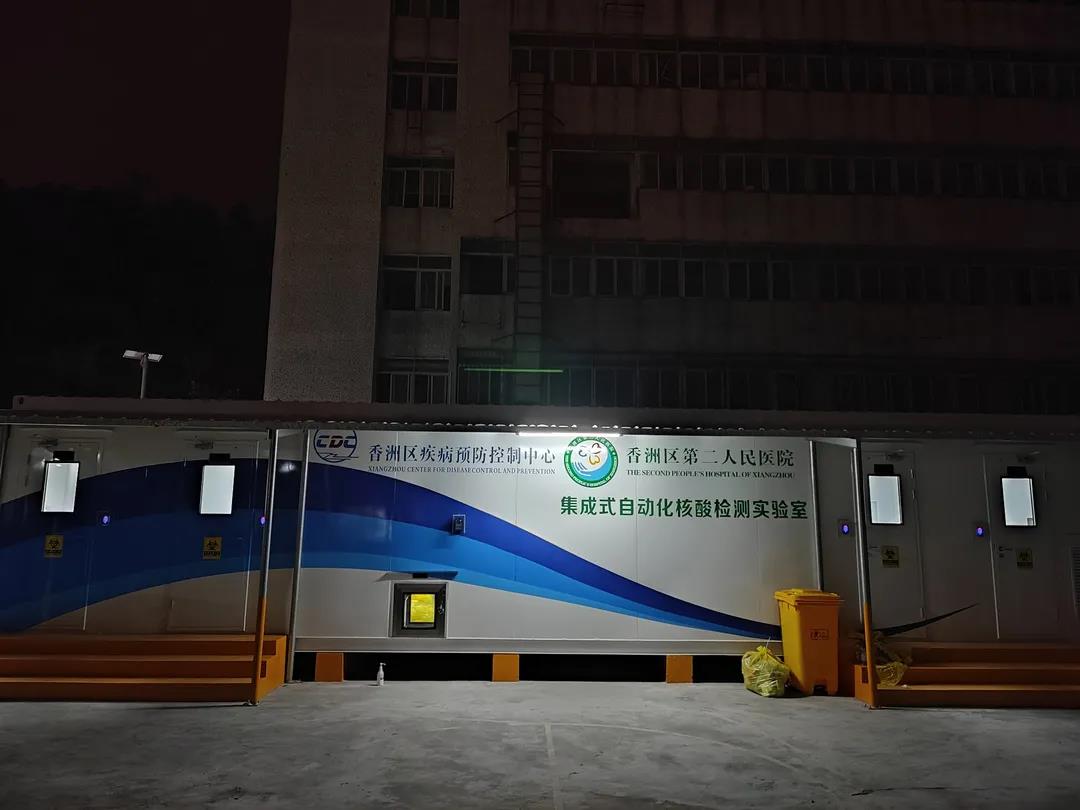
MGI Automated & Integrated Nucleic Acid Detection Mobile Platform
MGI 5G-powered robotic ultrasound system, MGIUS-R3, delivers "doctor-patient non-contact" diagnosis to people in Xi'an, Shenzhen, and Guangzhou
On January 6th, 2022, MGI 5G-powered robotic ultrasound system, MGIUS-R3, arrived at the Second Affiliated Hospital of Xi'an Jiaotong University in the middle of the night to support Xi'an COVID-19 effort. The remote ultrasonic robot diagnostic system consists of the doctor end and the patient end, and the patient end was deployed in the key isolation area. Sonographers in the Second Affiliated Hospital of Xi'an Jiaotong University can conduct remote real-time ultrasound diagnosis for patients in the isolation room via 5G network.

The Second Affiliated Hospital of Xi'an Jiaotong University
The use of the remote ultrasound system not only helps to solve the shortage of medical resources, but it also reduces the risk of cross-infection of medical staff and eases the burden of diagnosis and treatment of COVID-19 patients. Previously, Shenzhen confirmed serval locally transmitted COVID-19 cases. MGIUS-R3 was deployed in the fever clinic of Shenzhen Luohu People's Hospital to provide medical testing for fever patients during the pandemic. Up to now, MGI's remote robotic ultrasound system has provided ultrasonic diagnosis for nearly 2,000 people at the fever clinic.
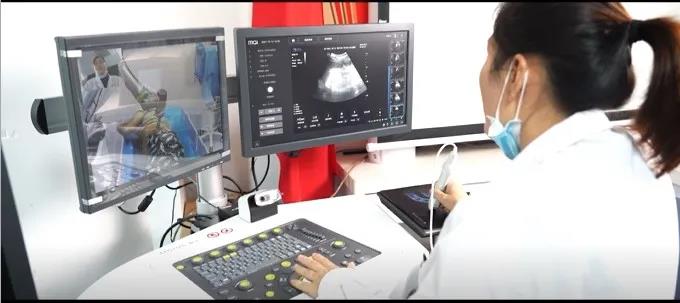
Shenzhen Luohu People's Hospital
In addition, the remote ultrasonic robot has also been deployed in the isolation ward of the Third Affiliated Hospital of Sun Yat-sen University in Guangzhou, helping doctors to conduct remote diagnosis, effectively reduce the risk of transmission of COVID-19 to medical personnel and save the lives of patients.
The remote robotic ultrasonic system has accumulated extensive frontline experience in fighting against the COVID-19 pandemic. For instance, MGIUS-R3 has supported Wuhan's mobile hospitals -- Leishenshan Hospital (the hospital for critical patients infected by COVID-19) and Huangpi Cabin Hospital.
Virus genome sequencing is a vital and rapidly developing tool in the diagnosis and control of the new coronavirus strains. Advanced genetic sequencing technologies have undoubtedly provided powerful tool for COVID-19 control and prevention and helped boost the public health response.
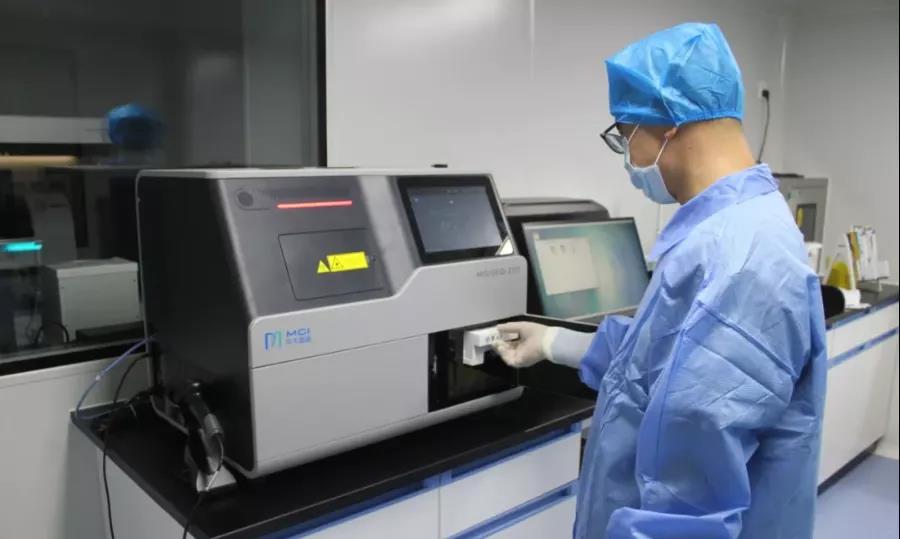
As one of the three companies in two countries worldwide with the ability to mass-produce clinical high-throughput sequencers, MGI has played an integral role in the global combat against COVID-19 based on its DNBSEQ™ sequencing technology. MGI sequencing platforms to date have supported more than one hundred healthcare institutions including CDCs in cities across China including Xiamen, Ruili, Haikou, Jinan, Shijiazhuang, contributing to the identification, surveillance, and tracing of COVID-19 cases.



 Sequencer Products: SEQ ALL
Sequencer Products: SEQ ALL















 Technologies
Technologies Applications
Applications Online Resources
Online Resources Data Bulletins
Data Bulletins Service & Support
Service & Support Global Programs
Global Programs Introduction
Introduction Newsroom
Newsroom Doing Business With Us
Doing Business With Us Creative Club
Creative Club










